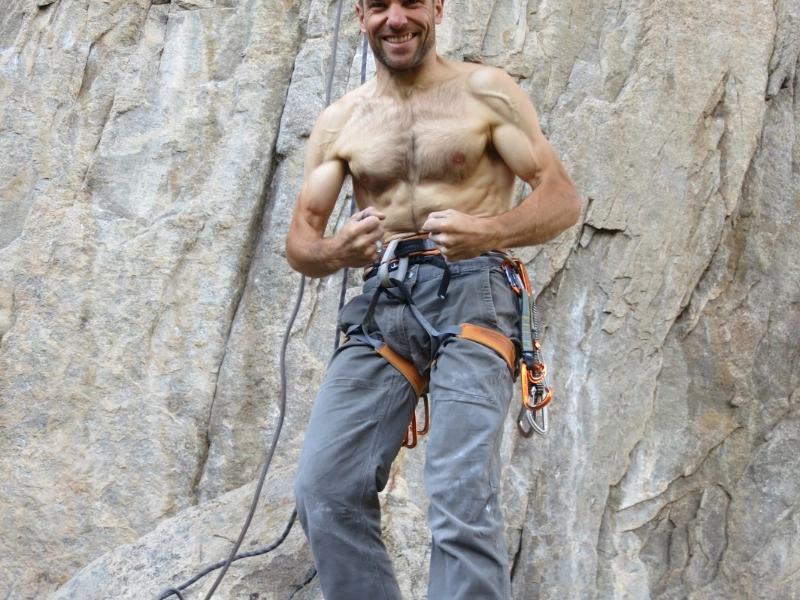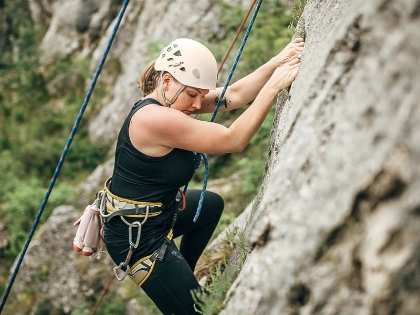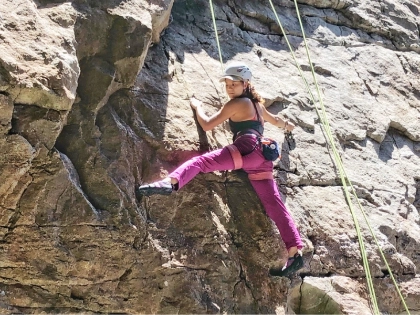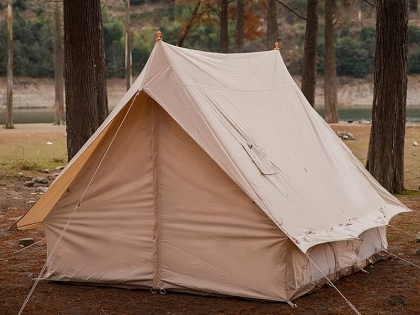Why Rock Climbers Are Skinny
Climbers can move their bodies more easily because of their lower body weight. They can also lessen their chance of getting hurt from carrying too much weight. In order to keep their body fat percentage low, climbers also eat healthily. They abstain from drinking alcohol and eating sugar-filled sodas. They also consume a diet high in nutrients, which helps them build muscle and fuel their efforts.
One sport that demands a lot of strength is climbing.

A climber's body mass index is low.
 Rock climbing is a physically demanding activity that calls for great strength. It also requires you to keep your strength-to-weight ratio at a specific level. Climbers are typically skinnier than the general population as a result.
Because they eat healthily and adhere to a diet that enhances their climbing abilities and weight-management objectives, the majority of climbers have low body mass indices. This diet consists of wholesome foods with an appropriate ratio of fats, proteins, and carbohydrates. This is essential to support muscle growth and recuperation after exercise.
Climbers frequently regulate their blood sugar and energy levels using a range of management techniques. These include keeping a caloric deficit, eating the proper quantity of calories, and avoiding processed and high-calorie foods.
Many climbers prioritize developing their strength and technique above maintaining proper body weight control. This is incorrect because a climber's performance is dependent on both body weight and strength.
Rock climbing is a physically demanding activity that calls for great strength. It also requires you to keep your strength-to-weight ratio at a specific level. Climbers are typically skinnier than the general population as a result.
Because they eat healthily and adhere to a diet that enhances their climbing abilities and weight-management objectives, the majority of climbers have low body mass indices. This diet consists of wholesome foods with an appropriate ratio of fats, proteins, and carbohydrates. This is essential to support muscle growth and recuperation after exercise.
Climbers frequently regulate their blood sugar and energy levels using a range of management techniques. These include keeping a caloric deficit, eating the proper quantity of calories, and avoiding processed and high-calorie foods.
Many climbers prioritize developing their strength and technique above maintaining proper body weight control. This is incorrect because a climber's performance is dependent on both body weight and strength.
Climbers have a low amount of body fat.
 Because it enables them to move faster, the best climbers have low body fat percentages. They can also stay strong and prevent injuries by doing this throughout the session. But it's crucial to remember that being skinny doesn't necessarily translate into climbing strength because this might result in bad habits like disordered eating.
For a climber to stay healthy, their food must be well-balanced and rich in protein and fiber. It should also have an abundance of fruits and vegetables, as well as healthy fats like olive oil. It's crucial to have adequate protein in your diet because it helps with muscular growth as well.
For climbers, being slender is advantageous, although it's not required to begin. Even though many novice rock climbers are larger by nature, they can still advance by developing their strength and technique. Furthermore, rock climbing is a high-calorie activity. You can increase the efficiency of your calorie burning and drop more weight by stopping briefly along the way.
Because it enables them to move faster, the best climbers have low body fat percentages. They can also stay strong and prevent injuries by doing this throughout the session. But it's crucial to remember that being skinny doesn't necessarily translate into climbing strength because this might result in bad habits like disordered eating.
For a climber to stay healthy, their food must be well-balanced and rich in protein and fiber. It should also have an abundance of fruits and vegetables, as well as healthy fats like olive oil. It's crucial to have adequate protein in your diet because it helps with muscular growth as well.
For climbers, being slender is advantageous, although it's not required to begin. Even though many novice rock climbers are larger by nature, they can still advance by developing their strength and technique. Furthermore, rock climbing is a high-calorie activity. You can increase the efficiency of your calorie burning and drop more weight by stopping briefly along the way.
Climbers follow a particular diet.
 A climber needs to be at a healthy weight in order to be able to climb as hard as possible. This implies that they require a diet rich in protein and carbs. They must also consume a lot of water. They stay hydrated and don't become dehydrated as a result.
In order to maintain their energy levels throughout the day, climbers also frequently consume tiny meals. Eating large meals right before climbing can cause them to slow down. For energy, they should also consume a lot of protein and carbohydrates. Salt and potassium, two electrolytes, should also be present. Sports drinks and coconut water contain these.
By gaining muscle mass, climbers can raise their resting metabolic rate, which will aid in weight loss and improve their competitiveness. They can achieve this by keeping an eye on their diet and ensuring that they are underweight in calories. Climbers should maintain a diet high in protein because it will help them maintain their current muscular mass.
A climber needs to be at a healthy weight in order to be able to climb as hard as possible. This implies that they require a diet rich in protein and carbs. They must also consume a lot of water. They stay hydrated and don't become dehydrated as a result.
In order to maintain their energy levels throughout the day, climbers also frequently consume tiny meals. Eating large meals right before climbing can cause them to slow down. For energy, they should also consume a lot of protein and carbohydrates. Salt and potassium, two electrolytes, should also be present. Sports drinks and coconut water contain these.
By gaining muscle mass, climbers can raise their resting metabolic rate, which will aid in weight loss and improve their competitiveness. They can achieve this by keeping an eye on their diet and ensuring that they are underweight in calories. Climbers should maintain a diet high in protein because it will help them maintain their current muscular mass.







